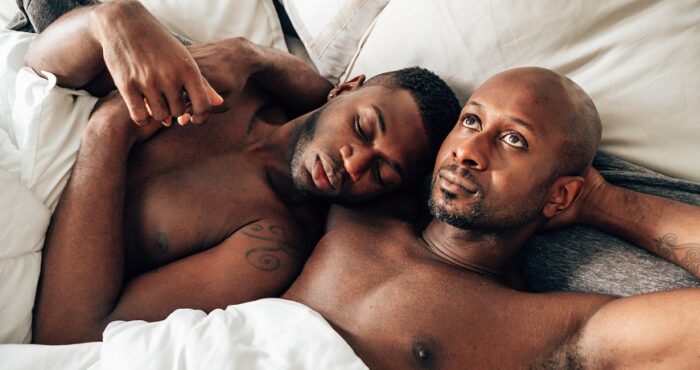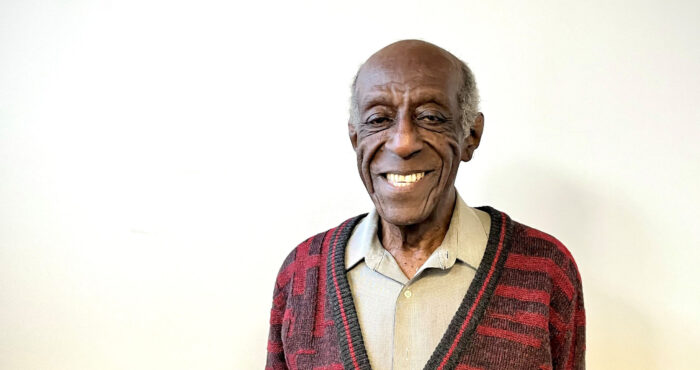I survived a politically fraught holiday season. Did you?

Listen, we all know that family holiday gatherings can feel like navigating a minefield of potential conflict. Coming back to normal life after a week or so with conservative family can be such a relief. Because nothing hurts as deeply as the wound of not being seen and heard by the ones who love us the most. One moment you’re passing the sweet potato pie with joy, the next you’re exhausted after having tried to explain what “they/them” pronouns mean to Uncle Paul, who’s already had three glasses of eggnog
If someone asks, “What are pronouns and why do they matter?” I learned to just offer a gentle explanation and say, “Pronouns are how we refer to someone when not using their name. It’s like respecting someone’s name–but for how we talk about them when they’re not in the room.” Or at least that’s what I tried to do the last time I was home for the holidays and introduced my friend, Treuse (they/them), to my Grandma Gloria.
It was after Treuse left, Grandma Gloria’s more pointed question hung in the air between us: “Was that a man or a woman?”
The words stung, not because they were meant to hurt me, but because they revealed how far we still had to go. This was the same woman who’d defended me at family dinners, who’d switched from saying “lifestyle” to “life” without complaint, who’d even started watching LGBTQ+ documentaries on Netflix to better understand my world.
Yet here we were. Her acceptance of me, it seemed, was a separate thing from understanding broader discussions of identity. It was like she’d carved out a safe space in her heart just for me, but wasn’t sure how to expand those walls to include others. I mean, she was always kind, doing her best to not offend, but I could see the tape playing behind her eyes of the transphobic and homophobic rhetoric she’d grown up hearing and hadn’t quite challenged yet.
I looked at her familiar face, and realized this wasn’t the end of our conversation–it was just another beginning of widening her circle of acceptance. I could label her as ignorant or prejudiced. That would be easier, maybe, than watching her take these small, sometimes clumsy steps toward understanding. I knew her heart isn’t cruel–it’s just learning a new language of love and acceptance.
I had to accept that her journey isn’t a straight line, but rather a spiral of learning, unlearning, and relearning. And my choice to see her effort rather than her mistakes makes room for both of us to grow. After all, isn’t that what she did for me? She chose to see not who she thought I should be, but who I was becoming.
Grandma Gloria and I have learned this dance of having these conversations without squashing each other’s toes. But preparing for the holidays with other family members means asking myself “What comments will be darting my way next?” more times than I’m willing to admit. It’s like I pack these anxieties alongside my overnight bag, each what-if scenario neatly folded like a sweater. While dealing with them has become easier, they’ve still not grown painless.
Like when Aunt Julia says, “I don’t understand why people can’t just be normal.” I’m already thinking about responding, “Normal is just a setting on a washing machine, Auntie. Humans are way more interesting.”
And when Uncle Paul starts down a path that feels dangerous and one that’ll take more energy than I’ve got to turn around from, there’s an arsenal of deflection techniques I’m ready to employ that would make a CIA operative proud. A well-timed “Who wants more pie?” can derail a potentially explosive conversation faster than you can say “pass the cranberry sauce.”
And more importantly, I’ve learned to read the room–to recognize the moment when education becomes emotional warfare. If someone’s tone shifts from curious to combative, if the alcohol has lowered inhibitions too far, if I feel that familiar tightness in my chest that signals genuine emotional harm, I know it’s time to disengage. These aren’t defeats. They’re acts of self-preservation.
Humor is my shield, redirection my sword. “Can you help me in the kitchen?” and a gentle nod to my Cousin Stella isn’t just a request–it’s a lifeline, a graceful exit that maintains dignity for everyone involved. The goal isn’t to change minds in a single conversation, but to plant seeds of understanding, to create small openings for future dialogue. Sometimes, survival means knowing when to step back, when to protect yourself, when to throw metaphorical tinsel as a distraction and live to explain another day.










